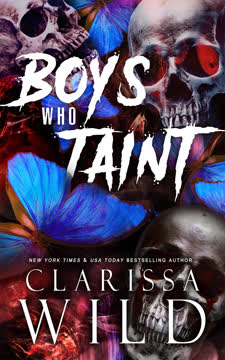Plot Summary
Pact Beneath the Cliffs
On a fateful night, a group of friends gathers at the cliffs above Lake Verity. Levi, tormented by his feelings for Aspen, and Mavis, Aspen's half-sister, both struggle with unrequited love. They make a pact to jump together and let go of their obsessions. But at the last moment, Levi hesitates, unable to let go of Aspen. Mavis jumps alone, slips, and falls to her death. The group is shattered, and Levi is left with crushing guilt, believing he caused her death by not jumping with her. This moment becomes the catalyst for years of pain, blame, and the unraveling of friendships and families.
Death and Accusation
Mavis's death devastates Aspen and her family. The night is chaos—accusations fly, and Levi is quickly branded a killer. Aspen's grief is compounded by confusion and anger, and the families' old rivalries reignite. Levi, wracked with guilt, accepts the role of villain, pushing Aspen away and allowing himself to be hated. The tragedy fractures the group, and the seeds of vengeance and obsession are sown, setting Aspen on a path to uncover the truth and punish those responsible.
Shattered Friendships
The aftermath of Mavis's death leaves the friends and their families irreparably divided. Aspen, haunted by loss, is consumed by the need for answers and revenge. Levi isolates himself, internalizing the blame. The Phantom Society and Skull and Serpent Society, once intertwined, become bitter enemies. Aspen's attempts to reconnect with Levi are met with coldness, fueling her hatred and her own self-destruction. The pain of betrayal and the weight of secrets begin to twist love into something darker.
The Phantom Society Divide
At Spine Ridge University, the feud between the Phantom Society and the Skull and Serpent Society escalates. Aspen, now a student, is caught between her need for vengeance and the dangerous allure of the Phantom boys—Levi, Apollo, and newcomer Grey. The campus is a battleground, with old wounds festering and new alliances forming. Aspen's relationships with the boys become fraught with manipulation, jealousy, and forbidden desire, as each tries to claim her for their own reasons.
Ghosts and New Obsessions
Aspen is stalked by a masked figure—her "Ghost"—who leaves cryptic notes and invades her space, promising to kill for her. Simultaneously, she is drawn to Grey, whose gentleness is a balm to her pain, and to Apollo, whose dangerous charisma offers protection at a price. Levi, now hardened and volatile, oscillates between pushing Aspen away and asserting his possessive claim. Aspen's grief and rage morph into a twisted longing for the very boys she should hate, and she makes a deal with her Ghost: her body, in exchange for Levi's death.
The Stalker's Invitation
Haunted by her Ghost, Aspen is lured to a bonfire, where she accepts his invitation and agrees to his terms. The price for Levi's death is her submission. The Ghost's identity remains hidden, but his presence is suffocating and intoxicating. Aspen is torn between fear and arousal, her need for revenge blurring with her own self-destruction. The boys' games grow more dangerous, and Aspen's agency slips as she is manipulated by all sides.
Bonfire Temptations
At the bonfire, Aspen is stalked, threatened, and seduced by the masked Ghost. The encounter is brutal and degrading, yet she is unable to resist. The lines between pleasure and pain, hate and longing, blur. Levi, Apollo, and Grey each vie for her attention, their own motives tangled in guilt, lust, and rivalry. Aspen's body becomes the battleground for their obsessions, and her own desires betray her quest for vengeance.
The Masked Encounter
Aspen is ambushed by her Ghost in the university auditorium, where she is tied, used, and left exposed. The encounter is filmed, and the footage becomes a tool for further manipulation. Aspen's shame and arousal are weaponized against her, deepening her dependence on her tormentors. The boys' power over her grows, and Aspen's sense of self erodes as she is forced to confront her darkest cravings and the reality of her own complicity.
Deals and Betrayals
Aspen, desperate to protect Grey from Levi's wrath, makes a deal with Apollo: her body in exchange for Grey's safety. The arrangement is degrading, but Aspen submits, believing it is the only way to prevent more bloodshed. Meanwhile, Grey's own secrets come to light—he is revealed to be a voyeur, obsessed with Aspen, and complicit in her humiliation. The web of lies and betrayals tightens, and Aspen is left questioning who she can trust, if anyone.
The Red Room Revelations
In the Phantom Society's red room, Aspen is subjected to the boys' darkest desires. The boundaries between pleasure and punishment dissolve as she is shared, used, and marked. The truth about the Ghost's identity is finally revealed: Levi, driven mad by guilt and obsession, has been tormenting Aspen as both her enemy and her secret lover. The revelation shatters Aspen, but also brings clarity—her hatred was always love twisted by pain.
Family Feuds Ignite
The fragile peace between the families collapses as Silas, Aspen's brother, kidnaps and tortures Levi in a bid for revenge. The parents, lovers, and friends are drawn into a bloody confrontation, knives and guns drawn, old wounds reopened. Aspen, caught in the crossfire, is forced to choose between her family and her love for Levi. The truth about Mavis's death is finally revealed to all, and the cycle of vengeance threatens to consume everyone.
The Truth Unraveled
Aspen intervenes, risking her own life to save Levi. The truth of Mavis's death—a tragic accident born of unrequited love and hesitation—is laid bare. Aspen's family is forced to confront their own guilt and rage, and the cycle of violence is broken by Aspen's refusal to let Levi die. The families, exhausted and bloodied, agree to a fragile truce. Aspen and Levi, finally honest with each other, are free to love without shame.
Blood, Forgiveness, and Fire
In the aftermath, Aspen, Levi, Apollo, and Grey find solace in each other's arms, their love forged in blood and pain. The families, though wary, begin to accept the unconventional union. Aspen's journey from vengeance to forgiveness is mirrored by the boys' own reckonings with guilt and desire. Together, they confront the ghosts of their pasts, finding healing in the very darkness that once threatened to destroy them.
Tainted, Together
Aspen and her three lovers embrace their unconventional relationship, finding strength in their shared brokenness. The Phantom Society's secrets are laid bare, and the group forges a new path, unashamed of their desires. Aspen's agency is reclaimed, not by denying her darkness, but by owning it. The families, though still wary, begin to heal, and the cycle of violence is finally broken.
Aftermath and New Beginnings
The group gathers to honor Mavis's memory, laying their ghosts to rest. Aspen, Levi, Apollo, and Grey continue their bloody crusade against the Bonesmen Brotherhood, channeling their violence into a shared purpose. The families, though scarred, find a new equilibrium. Aspen's journey from victim to survivor is complete, and she is finally able to love without fear.
The Price of Obsession
As the dust settles, the cost of obsession is clear—lives lost, innocence destroyed, and love forever changed. The group's violence leaves a trail of bodies, and the threat of exposure looms. The families' truce is uneasy, and new mysteries emerge—Sunny, Levi's sister, is missing, hinting at new dangers to come. The story ends with the promise of more blood, more secrets, and the enduring power of love tainted by darkness.
The Final Reckoning
In the end, Aspen and her lovers are united, their love forged in the crucible of violence and obsession. The families, though forever changed, find a measure of peace. The ghosts of the past linger, but no longer control their fates. Aspen, once consumed by vengeance, is now free to love—and to be loved—on her own terms, even as new threats gather on the horizon.
Characters
Aspen Caruso
Aspen is the emotional core of the story—a young woman shattered by her half-sister's death and consumed by the need for answers and revenge. Her journey is one of transformation: from victim to survivor, from vengeful to forgiving, from object to agent. Aspen's relationships with Levi, Apollo, and Grey are fraught with pain, desire, and manipulation, but ultimately she reclaims her agency by embracing her own darkness and choosing love on her own terms. Her psychological arc is one of self-destruction and rebirth, as she learns to forgive not only others, but herself.
Levi Torres
Levi is both Aspen's greatest tormentor and her truest love. Wracked with guilt over Mavis's death, he allows himself to be hated, internalizing the role of villain. His obsession with Aspen drives him to become her stalker, her Ghost, manipulating and punishing her as a way to atone for his perceived sins. Levi's psychological complexity lies in his self-loathing and his desperate need for Aspen's love, which he believes he does not deserve. His journey is one of confession, self-acceptance, and the painful realization that love and hate are two sides of the same coin.
Apollo Torres
Apollo is the story's agent of chaos—a man who revels in violence, sex, and power, but who is also deeply loyal to those he claims as his own. He offers Aspen protection at a price, using her body as currency in the boys' twisted games. Apollo's psychological makeup is defined by his need for control and his willingness to share, to push boundaries, and to embrace the darkness within himself and others. His development is marked by a gradual acceptance of vulnerability and the realization that true strength lies in connection, not domination.
Grey Westbrook
Grey is Aspen's initial refuge—a gentle, attentive boyfriend who seems to offer the safety and love she craves. But beneath his calm exterior lies a voyeuristic obsession and a capacity for violence that rivals the other boys. Grey's psychological arc is one of revelation: his secrets—hidden cameras, a taste for watching Aspen with others, and a personal vendetta against the Bonesmen Brotherhood—come to light, forcing him to confront the darkness within himself. His love for Aspen is both redemptive and destructive, and his willingness to share her is both a kink and a form of surrender.
Silas Rivera
Silas is Aspen's brother and the story's embodiment of familial rage. Unable to process his grief over Mavis's death, he becomes obsessed with punishing Levi, even as the truth eludes him. Silas's violence is both a shield and a weapon, and his inability to let go nearly destroys everyone. His arc is one of reluctant acceptance, as he is forced to confront the futility of vengeance and the necessity of forgiveness for the sake of his family.
Penelope Caruso
Aspen's mother is a force of nature—ruthless in her pursuit of justice for Mavis, and unyielding in her protection of her children. Her grief is a driving force in the family's vendetta against the Torreses, and her willingness to use violence mirrors the darkness in her children. Penelope's arc is one of gradual softening, as she is forced to accept the truth about Mavis's death and Aspen's love for Levi.
Dylan Caruso
Dylan is Aspen's father, caught between his love for his daughter and his hatred for the Torres family. His inability to let go of the past fuels the family feud, but his love for Aspen ultimately forces him to accept her choices. Dylan's arc is one of reluctant growth, as he learns to prioritize his daughter's happiness over his own need for revenge.
Felix Rivera
Felix, Mavis's father, is consumed by grief and the need for retribution. His pain is the catalyst for much of the story's violence, and his inability to forgive nearly destroys both families. Felix's arc is one of surrender—he is forced to accept that vengeance will not bring Mavis back, and that forgiveness is the only path to peace.
Lana Rivera
Levi's mother, Lana, is a formidable presence—quick to violence, fiercely protective of her children, and unafraid to take on anyone who threatens her family. Her willingness to kill for her children is both her strength and her flaw. Lana's arc is one of reluctant acceptance, as she is forced to let go of her hatred for the Carusos and allow Levi to choose his own path.
Sunny Reed
Sunny, Levi's half-sister, is a shadowy figure—skilled in violence, unafraid of death, and always on the periphery of the story's chaos. Her disappearance at the end hints at new dangers and unresolved mysteries, setting the stage for future conflict.
Plot Devices
Duality of Love and Hate
The story's central device is the blurring of love and hate—how grief, guilt, and longing can twist affection into violence, and how vengeance can become indistinguishable from desire. Aspen's journey is defined by her inability to separate her need for revenge from her craving for the boys who hurt her. Levi's self-loathing is both punishment and proof of his love. The narrative structure uses alternating perspectives and time jumps to reveal how each character's pain is rooted in love gone wrong.
Masked Identity and Voyeurism
The motif of the mask—literal and figurative—runs throughout the story. Levi's role as Ghost allows him to torment and seduce Aspen without consequence, while Grey's hidden cameras and voyeurism expose the dangers of being watched and objectified. The use of surveillance footage as a plot device both reveals and conceals the truth, forcing characters to confront their own complicity in their suffering.
Family Feud and Cycles of Violence
The story is structured around the ongoing feud between the Caruso and Torres families, with the Phantom and Skull and Serpent Societies as proxies for their parents' wars. The cycle of violence—death, blame, revenge, and more death—is only broken when Aspen and Levi choose forgiveness over vengeance. The narrative uses foreshadowing (the pact, the repeated threats, the missing Sunny) to suggest that peace is always temporary, and that the past is never truly buried.
Sexual Power and Submission
Sex is both weapon and salve in the story—used to punish, to heal, to assert dominance, and to surrender. Aspen's journey from victim to agent is mirrored in her sexual relationships with the boys, as she learns to embrace her own desires and reclaim power through submission. The red room, the masks, and the public and private acts of degradation all serve to explore the boundaries of consent, agency, and the ways in which trauma can be eroticized and overcome.
The Unreliable Narrator and Shifting Truths
The story is told through multiple perspectives, with each character's version of events colored by their own pain and desire. The truth about Mavis's death is withheld, revealed, and reinterpreted, forcing both characters and readers to question what is real. The use of confession, video evidence, and direct confrontation as plot devices allows for the gradual unraveling of secrets and the ultimate catharsis of forgiveness.
Analysis
"Boys Who Taint" is a dark, erotic exploration of grief, obsession, and the blurred boundaries between love and hate. At its core, the novel interrogates the ways in which trauma can twist affection into violence, and how the search for vengeance can become a form of self-destruction. Through Aspen's journey—from victim to survivor, from object to agent—the story challenges the reader to consider the costs of obsession, the dangers of secrecy, and the possibility of healing through radical honesty and forgiveness. The novel's explicit content is not merely gratuitous, but serves as a metaphor for the ways in which pain and pleasure, punishment and desire, are inextricably linked. The family feud, with its cycles of violence and retribution, is a microcosm of generational trauma, and the eventual truce is hard-won and fragile. Ultimately, "Boys Who Taint" suggests that true freedom comes not from denying one's darkness, but from embracing it—and that love, even when tainted, can be a path to redemption. The story's unresolved threads and the missing Sunny hint at the enduring nature of trauma and the ever-present threat of relapse, reminding us that peace is always provisional, and that the ghosts of the past are never far behind.
Last updated:
Review Summary
Boys Who Taint is a dark romance novel that has received mostly positive reviews. Readers praise its intense storyline, complex characters, and steamy scenes. The book follows Aspen and her relationships with three men: Levi, Apollo, and Grey. Many reviewers found the plot engaging, with twists and turns that kept them guessing. Some criticisms include the book's length and occasional inconsistencies. Overall, fans of the Spine Ridge University series seem to enjoy this latest installment, although a few readers found it less compelling than previous books.
Spine Ridge University Series
Download PDF
Download EPUB
.epub digital book format is ideal for reading ebooks on phones, tablets, and e-readers.













